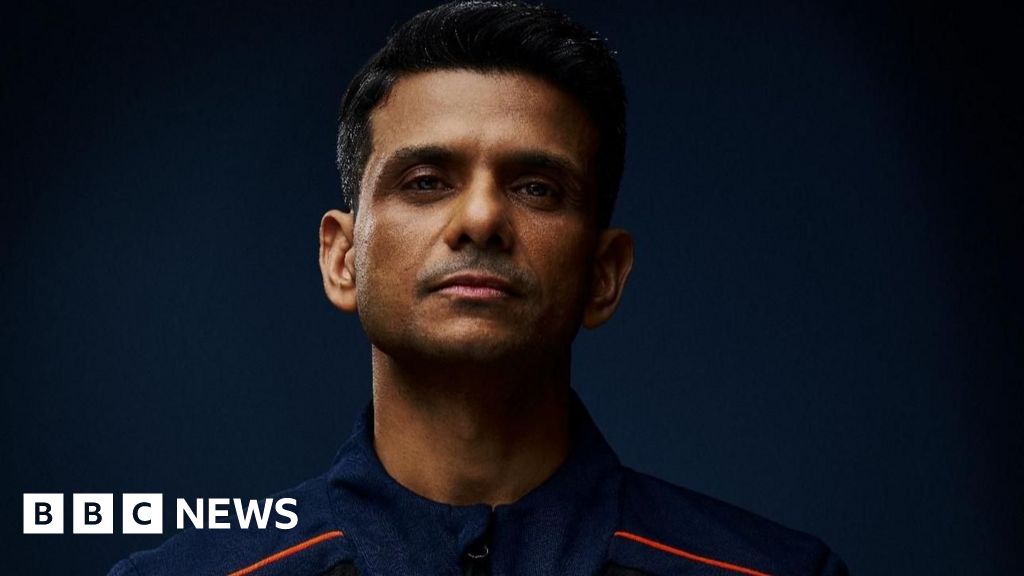- Crypto
The Hidden Struggles of Women’s Health
时间:2010-12-5 17:23:32 作者:Movies 来源:Lifestyle 查看: 评论:0内容摘要:Emory Healthcare, que gestiona el hospital, no ha explicado cómo los médicos decidieron mantener a Smith con soporte vital, excepto para explicar en un comunicado que se consideraron “las leyes sobre el aborto de Georgia y todas las demás leyes aplicables”.Emory Healthcare, que gestiona el hospital, no ha explicado cómo los médicos decidieron mantener a Smith con soporte vital, excepto para explicar en un comunicado que se consideraron “las leyes sobre el aborto de Georgia y todas las demás leyes aplicables”.
Karim Khan has categorically denied accusations that he tried for more than a year to coerce a female aide into a sexual relationship and groped her against her will.The ICC’s announcement was welcomed by women’s rights groups, who had called for Khan to step down after the allegations emerged last year.

“In any other professional setting, someone facing such serious allegations would have been expected to step down months ago,” said Eimear Shine, a spokesperson for The Hague-based Women’s Initiatives for Gender Justice.by The Associated Press last year found that two court employees, in whom the alleged victim confided, reported the alleged misconduct in May 2024 to the court’s independent watchdog. That was a few weeks before Khan, his defense minister and three Hamas leaders on war crimes charges.

The watchdog said it interviewed the woman and ended its inquiry after five days when she opted against filing a formal complaint. Khan himself wasn’t questioned at the time.While the watchdog could not determine wrongdoing, it nonetheless urged Khan in a memo to minimize contact with the woman to protect the rights of all involved and safeguard the court’s integrity.

The ICC statement on Friday said Khan “communicated his decision to take leave until the end” of an external investigation being carried by the Office of Internal Oversight Services, the
The court’s deputy prosecutors will be in charge of managing the prosecutor’s office while Khan is on leave, the statement said.His commitment has earned admiration from locals, who sometimes gift him crops or meat. He also receives a monthly food allotment worth about $80 along with internet data.
Parks agency director Edson Gandiwa said the platform ensures that “conservation decisions are informed by robust scientific data.”Villagers like Senzeni Sibanda say the system is making a difference: “We still bang pans, but now we get warnings in time and rangers react more quickly.”
Still, frustration lingers. Sibanda has lost crops and water infrastructure to elephant raids and wants stronger action. “Why aren’t you culling them so that we benefit?” she asked. “We have too many elephants anyway.”Her community, home to several hundred people, receives only a small share of annual trophy hunting revenues, roughly the value of one elephant or between $10,000 and $80,000, which goes toward water repairs or fencing. She wants a rise in Zimbabwe’s hunting quota, which stands at 500 elephants per year, and her community’s share increased.
- 最近更新
- 2025-07-07 04:22:04Why it took courage for these women to pose for the camera
- 2025-07-07 04:22:042 hours ago Climate change is boosting the risk of sleep apnea
- 2025-07-07 04:22:04Day after day, Palestinians in Gaza risk harrowing journey in desperate search for food
- 2025-07-07 04:22:04Key takeaways from the U.S. airstrikes on Iran. And, how Iran could respond
- 2025-07-07 04:22:0410 ways travel insiders deal with annoying flight delays
- 2025-07-07 04:22:04An AI video ad is making a splash. Is it the future of advertising?
- 2025-07-07 04:22:04LA Dodgers pledge $1 million in support of immigrants amid ICE raids
- 2025-07-07 04:22:04Emaciated after 5 years in prison, Belarusian dissident Tsikhanouski vows to fight on
- 热门排行
- 2025-07-07 04:22:042025 EBRI/Greenwald Retirement Confidence Survey
- 2025-07-07 04:22:0410 ways travel insiders deal with annoying flight delays
- 2025-07-07 04:22:04U.S. Bureau of Labor Statistics CPI Inflation Calculator
- 2025-07-07 04:22:04You told us how tariffs are affecting you
- 2025-07-07 04:22:04Rechargeable Waterproof Headlamp Flashlights (two-pack)$16$25Save $9with coupon
- 2025-07-07 04:22:04Israel strikes Tehran and Fordo site, as Russia backs Iran in deepening conflict
- 2025-07-07 04:22:04our guide to age-smart ways to save on home insurance
- 2025-07-07 04:22:044 takeaways on the U.S. airstrikes on Iran — and what might come next
- 友情链接
- Have Israel and Iran agreed to a ceasefire? What we know Clever Dude6 hidden fire hazards in most homes that still go unnoticedRead the full story Will Iran block the Strait of Hormuz? Inter Miami enter Club World Cup last 16 to set up Messi’s date with PSG Save up to 50% on pillows from Coop, Lincove, and Tempur-Pedic during early Prime Day sales Elle DecorThe coolest trend in design? Going back in time A pizza tour guide helped us test 16 frozen pizzas: These are the winners Real Simple12 plants that attract unwanted bugs, critters to your yard The Hidden Struggles of Women’s Health Inter Miami enter Club World Cup last 16 to set up Messi’s date with PSG ElleSolange, Raul Lopez helped celebrate 20 years of Telfar in NYC Inter Miami enter Club World Cup last 16 to set up Messi’s date with PSG Kari Lake guts Voice of America as U.S. reporters face threats abroad Iranian missile barrage strikes Israel after deadline Trump announced for ceasefire p… smart speakers or the latest in tech such as The best smart speakers for seniors of 2025, tested by AOL How the Iran-Israel ceasefire is meant to play out Trump delivers angry outburst at Israel-Iran ceasefire breaches Supreme Court lets Trump restart deporting migrants to ‘third countries’ The best hair growth vitamins and supplements, according to experts The best headphones for more restful sleep of 2025 Iranian missile barrage strikes Israel after deadline Trump announced for ceasefire p… What the US and Israel really want from Iran The 11 best hot sauces of 2025, according to chefs Central Park hits temp record last seen on this date in 1888 as heat wave hits easter… U.S. Supreme Court allows -- for now -- third-country deportations AOLSave up to 50% on pillows from Coop, Lincove, and Tempur-Pedic during early Prime Day sales What’s with Iran’s Death to America chant? How the Iran-Israel ceasefire is meant to play out Iranian missile barrage strikes Israel after deadline Trump announced for ceasefire p…
